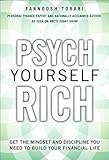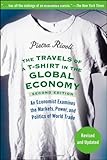One of the key parts of any successful personal finance strategy is to save money. It’s a two-prong thing. You save money by putting it away in a savings account and you also save money by reducing the money that you would be spending. Each plays a very important part in your financial life.
Often, when you talk to someone about saving money, they are quick to exclaim something along the lines of “but, I’ve already squeezed as much as I possibly can out of my budget and spending! There’s nowhere else to save!” And in nearly every single one of those cases, they are completely wrong. And in almost every case, that person needs to have a very serious discussion with him or her self and think about what is really a “need” and what is actually a “want”.
What you think are needs are not. Do you really need a car? Two pairs of shoes? Two cars? Three bathrooms? How about the ever favorite whipping post that is cable t.v.? How deeply are you willing to cut. How much unlike everyone else are you willing to live so that you can save money and work towards financial freedom?
What extremes are you willing to go to? Are you willing to go so far as to exist on Ramen and Rice for a year? How about walking to work? How about cutting back to only one pair of shoes? How about selling your house and moving into something much smaller? Yes, those are all sacrifices. And, yes, they will all take a lot of adjustment to get used to. But the savings could be a potential boon to your personal finances. What other money saving ideas can you come up with?

You really need to decide what you really “need”. Many of the things that we think we need are really things that we want, but that have become so ingrained into our lives that we feel we need them. For instance, in our family, we have two cars. My wife needs a car for her work, and it’s easier for us if we don’t have to try and coordinate our schedules. So, we have two cars. We don’t have to try and figure out how to rearrange so that one of us can get home at 5 when the other has to be at a meeting at 4:30. Could it be done? Perhaps. We’ve made it work for a few days at a time when one or the other of our cars has been in the shop. Another more personal example would be books. I like to read. I get a few here and there for review that I usually don’t have to pay for, but otherwise, I buy my books or trade for them on Paperbackswap.com. Once I’ve read them, I usually put them back into the paperbackswap system, but you can sell used books for cash too. Even trading for them, it still costs me the cost of shipping to send them to whomever requested them. It’s way cheaper than buying retail, but it still has a cost. I certainly don’t need those books. I could just as easily borrow books from the library. But, would they be the exact ones I want to read? Not always.
In our case, there are many wants that have been elevated to a level of need. Deep down, we know we don’t really need those things, but we want them bad enough and they give us enough value that we’re willing to keep them and the expense that goes along with them.
Yes, if we decided that we wanted to be rid of our debt now and not a minute later, we could eliminate a lot of things and be rid of it. We choose not to go to that extreme, however. Part of that decision is that we just don’t feel that we need to. We’re making advances in our finances, and, while it’s slower than it could be, we’re happy making that compromise.
But, what about you? How extreme are you willing to go to get rid of your debt. And what compromises, like us, are you willing to make at the risk of delaying your debt payoff? If you’re paying off debt, take a close look at the things that you think you need. If I were still a betting man, I’d bet that a very large portion of those things aren’t really needs at all.
Image Credit: 2004-10-03 Newport, RI – Cliff Walk, Carey Mansion by QuiteLucid, on Flickr


 Making trade routes more efficient through optimization reduces costs for trade along those routes. Many of the things that we have today wouldn’t be available to us if we hadn’t optimized the trade routes here. Consider oranges. They don’t grow up here in the northern plains. The only way to get them is to import them from someplace like Florida or California. If the trade routes between Florida and the northern plains hadn’t been optimized by the invention (and use) of the combustion engine and, later, the invention of the federal highway system, it would make oranges too expensive to ship way up here. The oranges would either rot on the way here, or the added expense of keeping the oranges from spoiling on the way here would be cost prohibitive. But, because that trade route has been optimized to a greater degree, it’s possible for me to go to the local grocery store and buy oranges that were grown in Florida for nearly the same price as I would for produce that was grown here.
Making trade routes more efficient through optimization reduces costs for trade along those routes. Many of the things that we have today wouldn’t be available to us if we hadn’t optimized the trade routes here. Consider oranges. They don’t grow up here in the northern plains. The only way to get them is to import them from someplace like Florida or California. If the trade routes between Florida and the northern plains hadn’t been optimized by the invention (and use) of the combustion engine and, later, the invention of the federal highway system, it would make oranges too expensive to ship way up here. The oranges would either rot on the way here, or the added expense of keeping the oranges from spoiling on the way here would be cost prohibitive. But, because that trade route has been optimized to a greater degree, it’s possible for me to go to the local grocery store and buy oranges that were grown in Florida for nearly the same price as I would for produce that was grown here.